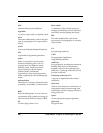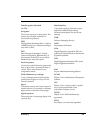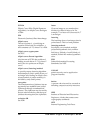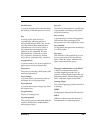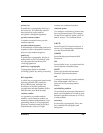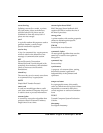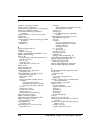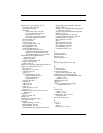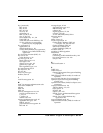
Glossary 345
private key
In public-key cryptography, this key is
the secret key. It is primarily used for
decryption but is also used for
encryption with digital signatures.
pseudo-random number
A number extracted from a pseudo-
random sequence.
pseudo-random sequence
A deterministic function that produces a
sequence of bits with qualities similar to
that of a truly random sequence.
public key
In public-key cryptography this key is
made public to all; it is primarily used
for encryption but can be used for
verifying signatures.
public-key cryptography
Cryptography based on methods
involving a public key and a private key.
RSA algorithm
A public-key cryptosystem based on the
factoring problem. RSA stands for
Rivest, Shamir and, Adleman, the
developers of the RSA public-key
cryptosystem and the founders of RSA
Data Security (now RSA Security).
random number
As opposed to a pseudo-random
number, a truly random number is a
number produced independently of its
generating criteria. For cryptographic
purposes, numbers based on physical
measurements, such as a Geiger
counter, are considered random.
relatively prime
Two integers are relatively prime if they
have no common factors. For example,
14 and 25 are relatively prime, while 14
and 91 are not; 7 is a common factor.
S-HTTP
Secure HyperText Transfer Protocol. A
secure way of transferring information
over the World Wide Web.
S/MIME
Secure Multipurpose Internet Mail
Extensions.
SSL
Secure Socket Layer. A protocol used for
secure Internet communications.
SWIFT
Society for Worldwide Interbank
Financial Telecommunications.
salt
A string of random (or pseudo-random)
bits concatenated with a key or
password to foil precomputation
attacks.
satisfiability problem
Given a Boolean expression, determine if
there is an assignment of 1's and 0's such
that the expression evaluates to 1. This is
a hard problem.
secret key
In secret-key cryptography, this is the
key used both for encryption and
decryption.






